Are you ready to unlock nature’s secrets and discover the best ways to garden effortlessly? Gardening can be a relaxing and fulfilling activity, but it can also be time-consuming and frustrating without the right tools and techniques. In this article, I will share with you some natural gardening methods that can make your gardening experience more enjoyable and productive. From enhancing soil health to utilizing leftover fruits and vegetables, you can create a thriving garden with ease.
Key Takeaways:
- Wood ash can neutralize acidic soil and promote plant growth.
- Aspirin tablets containing salicylic acid can boost plant immune systems and prevent fungal diseases.
- Leftover fruits and vegetables can provide valuable nutrients for plants.
- Vinegar can be used as an herbicide and is safe for plants.
- Carbonated water provides essential CO2 and macronutrients for plant growth.
- Coffee grounds and eggshells improve soil quality and provide essential nutrients.
- Used tea bags and leaves help enhance soil structure and contain valuable nutrients.
- Grass clippings, compost tea, turmeric, aquarium water, and milk can also be used for various gardening benefits.
- The “Vegetable Gardener’s Bible” and “The Seed Saving Bible” are recommended resources for comprehensive guidance on different aspects of gardening.
Enhancing Soil Health for Optimal Plant Growth
One secret ingredient for plant growth lies in the use of wood ash, which acts as a neutralizing agent for acidic soil. Wood ash is rich in essential nutrients like calcium, potassium, and magnesium, which are necessary for plant growth. When added to acidic soil, wood ash neutralizes the pH levels, promoting optimal soil health for plants.
| Benefits of Wood Ash as a Soil Neutralizing Agent |
|---|
| 1. Rich in essential nutrients for plant growth. |
| 2. Increases soil pH levels for optimal soil health. |
| 3. Improves soil structure and water retention. |
Aside from neutralizing acidic soil, wood ash also helps improve soil structure and water retention. It breaks up compacted soil and makes it easier for plant roots to absorb water and nutrients.
When using wood ash as a soil neutralizing agent, it’s crucial to apply it in moderation. Excessive amounts of wood ash can harm plants and alter soil pH levels too much. A suitable amount to apply is 10-15 pounds of wood ash per 1,000 square feet of soil.
Overall, wood ash is an excellent natural ingredient for enhancing soil health and promoting optimal plant growth. By adding it to acidic soil, gardeners can enjoy healthy and thriving plants in their garden.
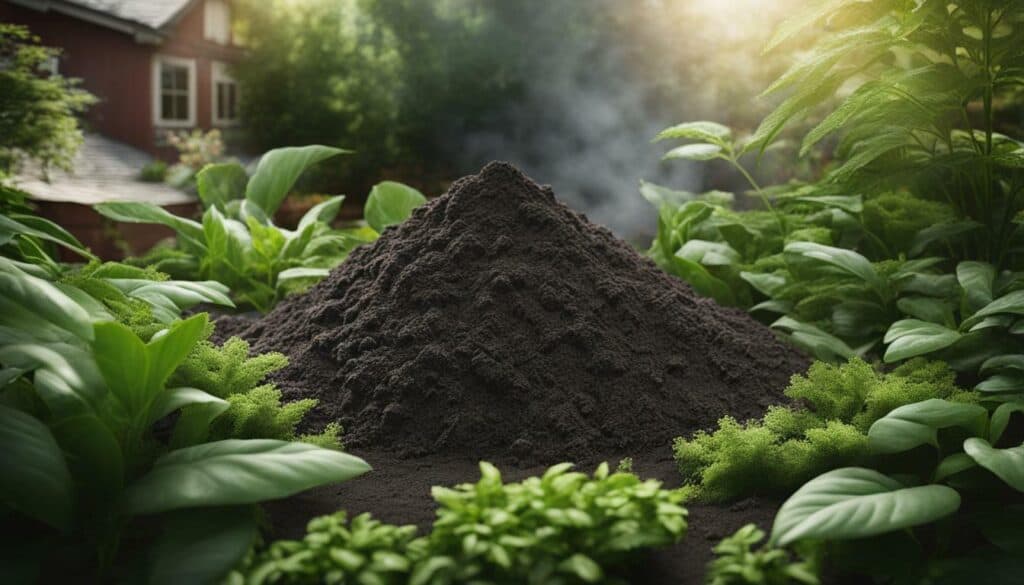
Boosting Plant Growth with Aspirin Tablets
Did you know that aspirin tablets containing salicylic acid can do wonders for your plants by boosting their growth and warding off fungal diseases?
Aspirin tablets, when crushed and dissolved in water, can be sprayed onto plants to promote their growth. Salicylic acid, the active ingredient in aspirin, helps boost the plant’s immune system, making it more resistant to various diseases and pests. Additionally, aspirin can also help extend the life of cut plants and flowers.
Before using aspirin tablets in your garden, it’s important to check the specified uses and dilution rates. Some plants may be more sensitive than others, and overuse of aspirin may have adverse effects.
In addition to aspirin tablets, there are other natural ingredients that can be used to promote plant growth. Wood ash, for example, is a natural neutralizing agent for acidic soil and can improve soil fertility. Leftover fruits and vegetables can also be used to provide essential nutrients for plants. Vinegar is another effective ingredient for gardening, functioning as a natural herbicide and weed-killer. Carbonated water can promote rapid plant growth, while coffee grounds can be used to improve soil aeration.
Eggshells, rich in calcium, can be crushed and added to the soil to benefit plants like tomatoes and improve overall soil quality. Used teabags and leaves can improve soil structure and drainage, benefiting acid-loving plants. Grass clippings and compost tea are additional ingredients that can be used to promote healthy plant growth, while turmeric can be used as a natural pest repellent. Aquarium water can also be used to provide nutrients to plants, and milk can act as a natural fungicide.
For more comprehensive guidance on different aspects of gardening, resources such as the “Vegetable Gardener’s Bible” can provide valuable information and tips on soil management, pest control, and companion planting. “The Seed Saving Bible” is an eBook that provides expert advice on creating a flourishing backyard vegetable garden. By following the tips and techniques outlined in these resources, gardeners can cultivate healthy and bountiful gardens while saving time and money.
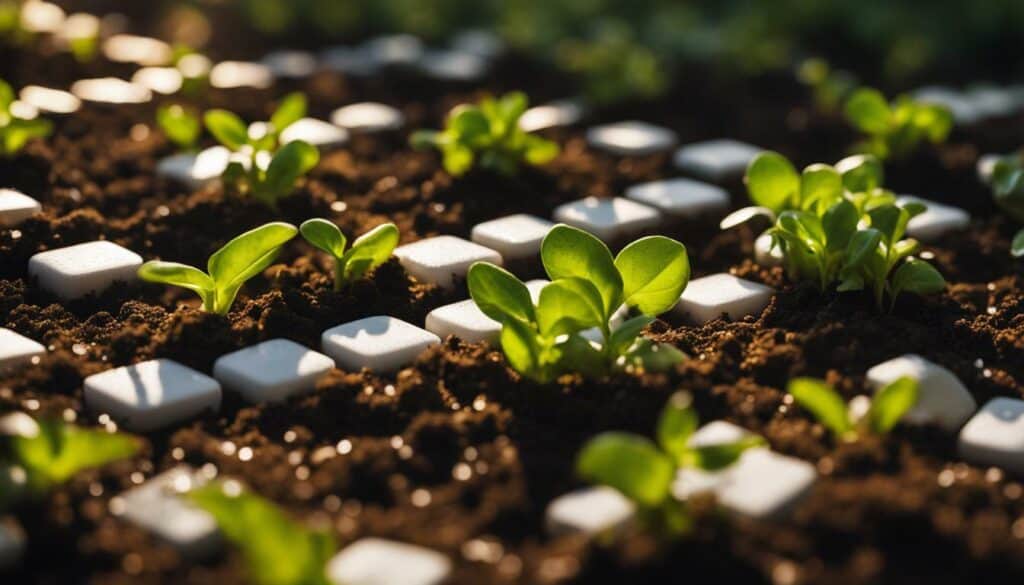
Utilizing Leftover Fruits and Vegetables for Nutrient Boost
Don’t throw away those leftover fruits and vegetables – they contain valuable nutrients that can significantly enhance your plant growth. Many nutrients are present in the peelings and scraps of fruits and vegetables, such as potassium, phosphorus, and calcium. By utilizing these leftovers, gardeners can decrease waste and provide a nutrient boost to their plants in an organic and sustainable way.
For example, banana peels are rich in potassium and phosphorus, making them a great addition to tomato, rosebush, pepper, and flowering plant gardens. Simply chop up the peels and bury them in the soil around the plants. Other fruits and vegetables, like apple cores, citrus peels, and carrot tops, can also be added to the soil for a nutrient boost.
In addition to fruits and vegetables, there are several other natural ingredients that can be used to enhance plant growth and improve soil health. Wood ash, aspirin tablets, vinegar, carbonated water, coffee grounds, eggshells, used teabags/leaves, grass clippings, compost tea, turmeric, aquarium water, and milk all provide a range of nutrients and beneficial compounds that promote the growth of plants, leading to bigger and healthier yields.
By incorporating these natural ingredients into your gardening routine, you can boost the nutrient content in your garden and promote healthier plant growth. Not only is this an effective way to enhance your garden, it’s also an eco-friendly way to decrease waste and promote sustainability.
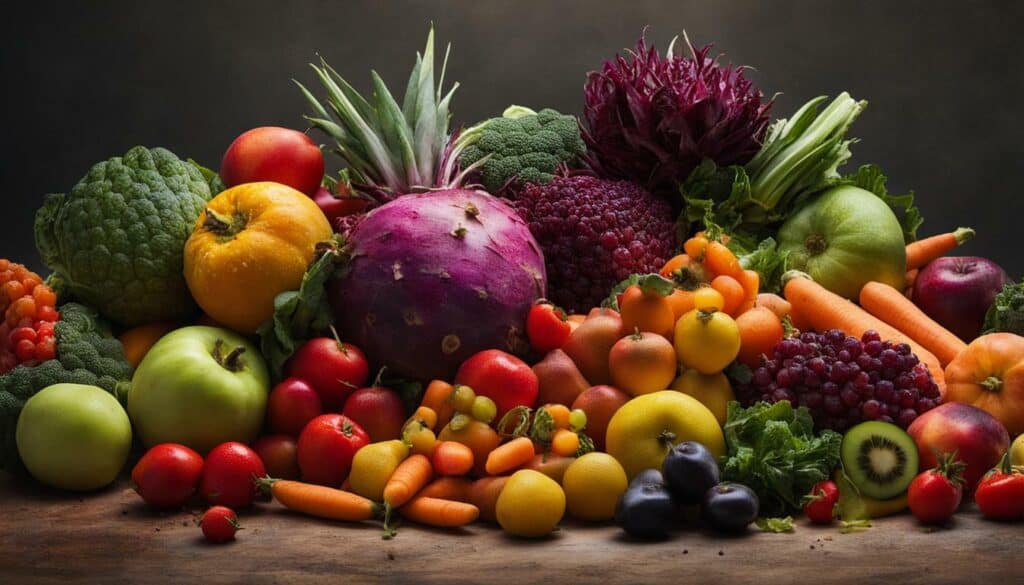
Harnessing the Power of Vinegar as an Herbicide
Did you know that vinegar can be your secret weapon against unwanted weeds and pests in the garden, acting as a safe and inexpensive herbicide? Vinegar is an effective alternative to chemical herbicides, and it won’t harm your plants.
To create a vinegar herbicide, mix white vinegar with a 10% or 20% solution. Add a cup of salt, a tablespoon of lemon juice, and two tablespoons of dish soap. Stir well and spray on plants. This mixture can effectively kill weeds without harming surrounding plants.
One of the best things about using vinegar as an herbicide is that it is safe for pets and children. Unlike chemical herbicides, vinegar does not have harmful side effects that can cause harm to people or animals. Plus, it’s much cheaper than buying chemical herbicides.
Don’t let unwanted weeds take over your garden. Try using vinegar as an herbicide, and enjoy a healthy, thriving garden without any harmful chemicals.
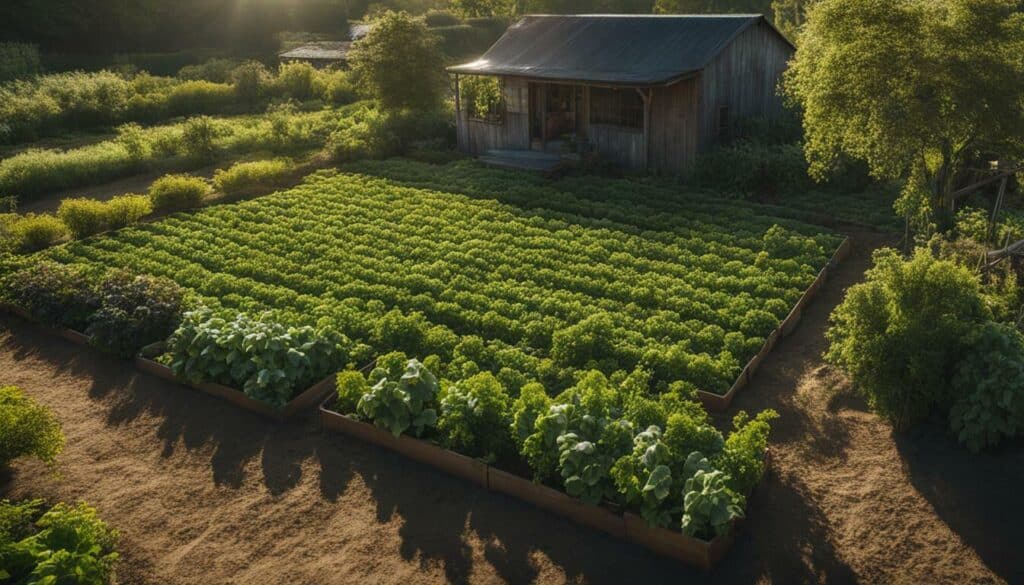
Rapid Growth with Carbonated Water
You might be surprised to learn that carbonated water, with its CO2 content, can play a vital role in accelerating plant growth and making your garden more vibrant. Club soda contains macronutrients such as oxygen, hydrogen, phosphorus, carbon, potassium, and sodium, which are beneficial for plant growth.
Plants require carbon dioxide (CO2) for photosynthesis, and carbonated water provides this vital component. While carbonated water can be used on its own, a solution can be created for even more significant results. Mix one can of club soda with one beer can (12 oz), half a cup of liquid dish wash, half a cup of mouthwash, and a half cup of household ammonia. Spray the solution on plants every three weeks to achieve rapid growth.
It is essential to avoid using soda drinks containing sugar, as they can attract pests and disturb the NPK ratio of the soil. Instead, opt for plain carbonated water to avoid any adverse effects on the plants.
By incorporating carbonated water and its solution into your regular plant care routine, you can achieve rapid growth and greener plants. It is an affordable and effective way to enhance your garden’s appearance and overall health.
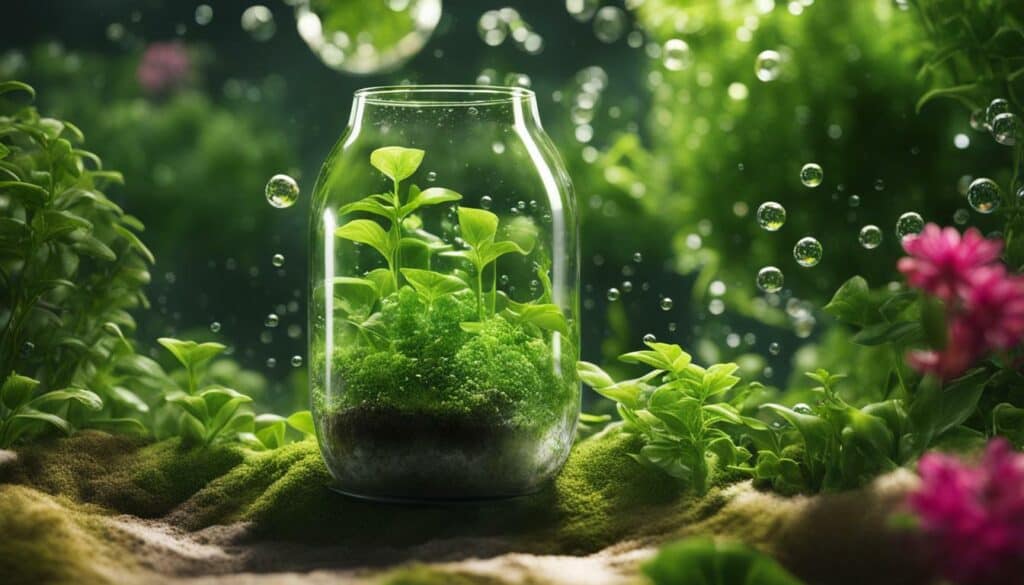
Enhancing Soil with Coffee Grounds
Before you discard those coffee grounds, think again – they can be a game-changer in improving your soil’s aeration and nutrient composition. Coffee grounds are a natural and effective way to enhance soil health, making them an ideal addition to your garden routine.
Coffee grounds provide excellent aeration, improving soil structure and drainage. They are also a rich source of essential nutrients such as phosphorus, potassium, magnesium, and copper, making them a valuable fertilizer. Furthermore, coffee grounds release nitrogen as they decompose, which promotes plant growth.
Despite their mildly acidic nature, coffee grounds can be used in neutral and alkaline soil without causing any harm. Their use can also lower soil pH for acid-loving plants, such as blueberries, azaleas, and rhododendrons.
To use coffee grounds in your garden, spread them directly onto soil or add them to your compost pile. Alternatively, mix them with water to create a coffee ground “tea” that can be used as a liquid fertilizer. For best results, we recommend reading our detailed article on how to use coffee grounds in your garden.
| Benefits | How to Use |
|---|---|
| Coffee grounds provide aeration, improving soil structure and drainage. | Spread them directly onto soil or add them to your compost pile. Mix them with water to create a coffee ground “tea” that can be used as a liquid fertilizer. |
| They are enriched with vital nutrients such as phosphorus, potassium, magnesium, and copper. | |
| Coffee grounds release nitrogen as they decompose, benefiting plant growth. | |
| Their mildly acidic nature makes them suitable for neutral and alkaline soil. |
Incorporating coffee grounds into your garden routine is not only eco-friendly but also budget-friendly. Give this simple gardening technique a try and witness the magic for yourself. Your soil will thank you!
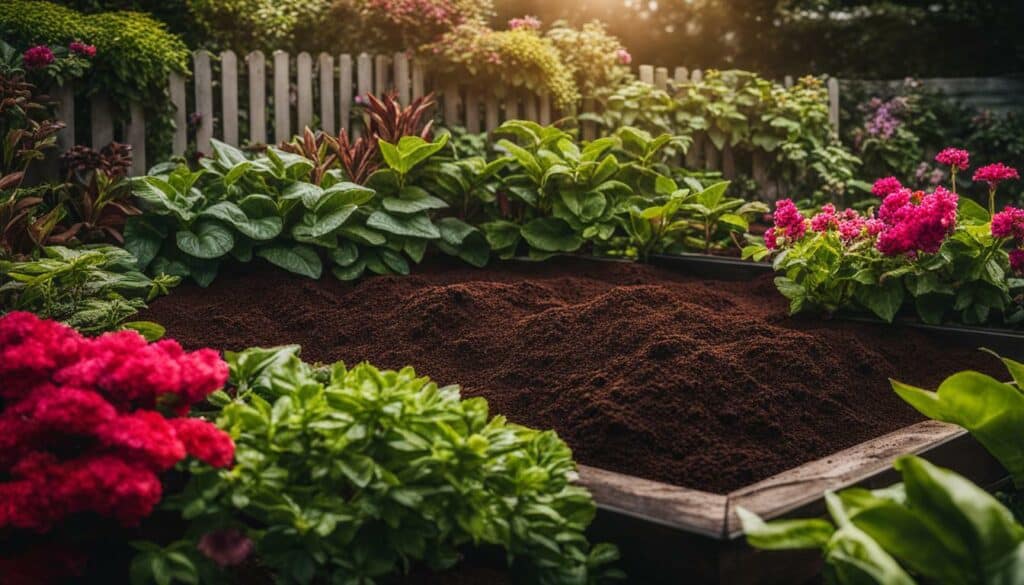
Utilizing Eggshells for Calcium-Rich Soil
Don’t throw away those eggshells – they can be your secret to providing calcium-rich soil and boosting the growth of plants, especially tomatoes. Eggshells are a natural and biodegradable source of calcium, which is crucial for healthy plant growth and development. By using crushed eggshells and mixing them into the soil, you can address calcium deficiencies in the soil and promote better plant growth.
Eggshells are easy to collect and use. Simply rinse them out and allow them to dry for a few days. Then, crush them up and sprinkle them over the soil where you want to plant tomatoes. Mix them into the soil and plant your tomato seedlings as usual. As the eggshells break down, they release calcium into the soil, which is slowly absorbed by the plants.
Eggshells can also be used in other ways to benefit your garden. For example, they can be added to compost piles to provide additional calcium and minerals. They can also be used to deter pests, such as slugs and snails, by creating a rough surface that these pests do not like to crawl over.
Utilizing eggshells for calcium-rich soil is just one of many natural ingredients that can improve plant growth in the garden. By incorporating a variety of natural ingredients, such as wood ash, aspirin, leftover fruits and vegetables, vinegar, carbonated water, coffee grounds, used teabags and leaves, grass clippings, compost tea, turmeric, aquarium water, and milk, you can create a nutrient-rich soil that promotes healthy plant growth and higher yield. Experiment with different natural ingredients to see what works best for your garden and enjoy the benefits of a thriving garden.
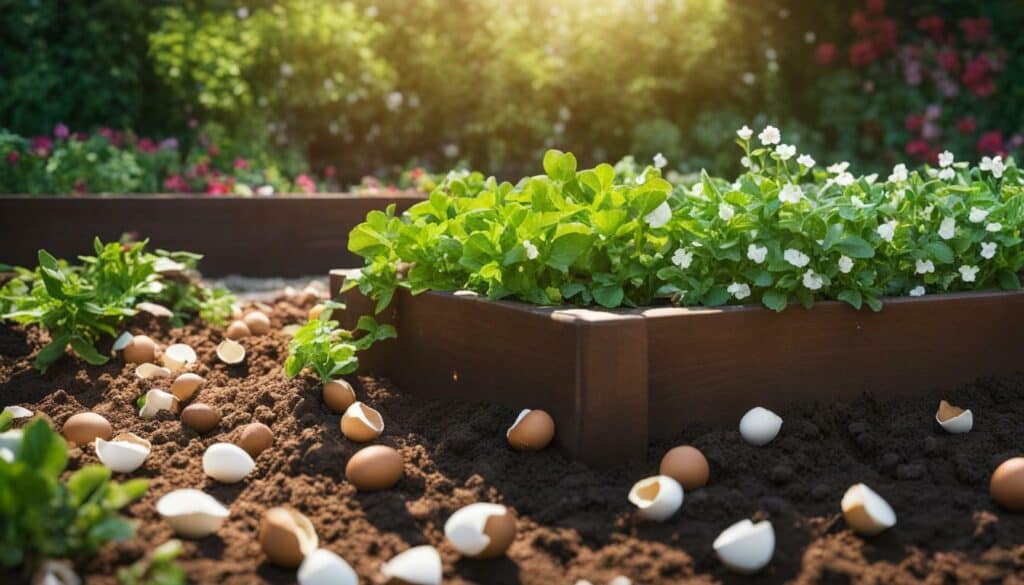
Using Tea Leaves and Bags for Better Soil Structure
Don’t toss those used teabags and leaves – they can work wonders for your garden soil by improving its structure and drainage, benefiting acid-loving plants. Tea leaves and bags contain valuable nutrients that can foster plant growth, such as nitrogen, potassium, phosphorus, magnesium, and calcium.
The tannic acid present in tea can also help lower soil pH, making it more suitable for acid-loving plants like blueberries, azaleas, and rhododendrons.
To utilize tea leaves and bags in your garden, you can directly incorporate them into the soil or use them to create a tea infusion. To create the tea infusion, simply steep the used leaves or bags in water for a few hours or overnight. This natural tea fertilizer can then be used to water plants or added to the soil for a nutrient boost.
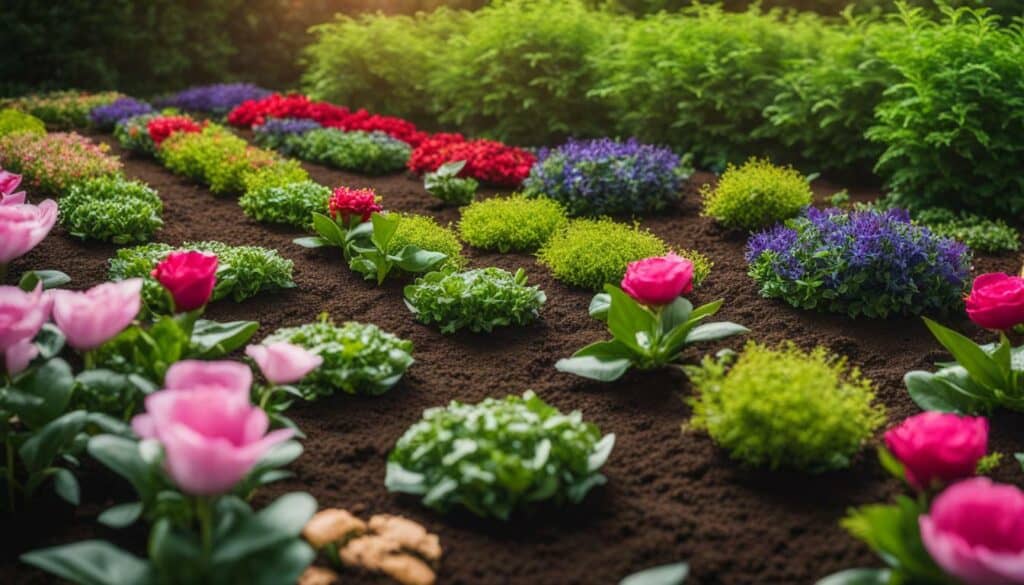
Tea leaves and bags are not the only natural ingredients you can use to enhance soil structure and plant growth. Wood ash, aspirin, leftover fruits and vegetables, vinegar, carbonated water, coffee grounds, eggshells, grass clippings, compost tea, turmeric, aquarium water, and milk can also be utilized for gardening purposes.
Other Effective Gardening Techniques
Apart from the previous techniques, there are several other effective ways to optimize your gardening experience, such as utilizing grass clippings, compost tea, turmeric, aquarium water, and even milk.
Grass clippings
Grass clippings can be a valuable source of nitrogen and can improve soil quality. Simply spread the clippings over your garden beds to release nitrogen slowly as they decompose.
Compost tea
Compost tea is a nutrient-rich liquid fertilizer made by steeping compost in water. It enhances plant growth and encourages beneficial microbes in the soil. Use it to water your plants or spray it on their leaves.
Turmeric
Turmeric is a natural fungicide and bactericide that can also repel pests. Sprinkle it near the roots of your plants to protect them against fungal infections and pests.
Aquarium water
Aquarium water can be a source of beneficial minerals and bacteria for your plants. Use it to nourish your plants and promote healthy growth.
Milk
Milk can be used in various ways in the garden. It is a good source of calcium and can also act as a fungicide, insect control, and soil health enhancer. Dilute it with water and spray on leaves or add it to the soil to nourish your plants.
Implementing these techniques can make a significant difference in the health and productivity of your garden. Experiment with different methods and see what works best for you.
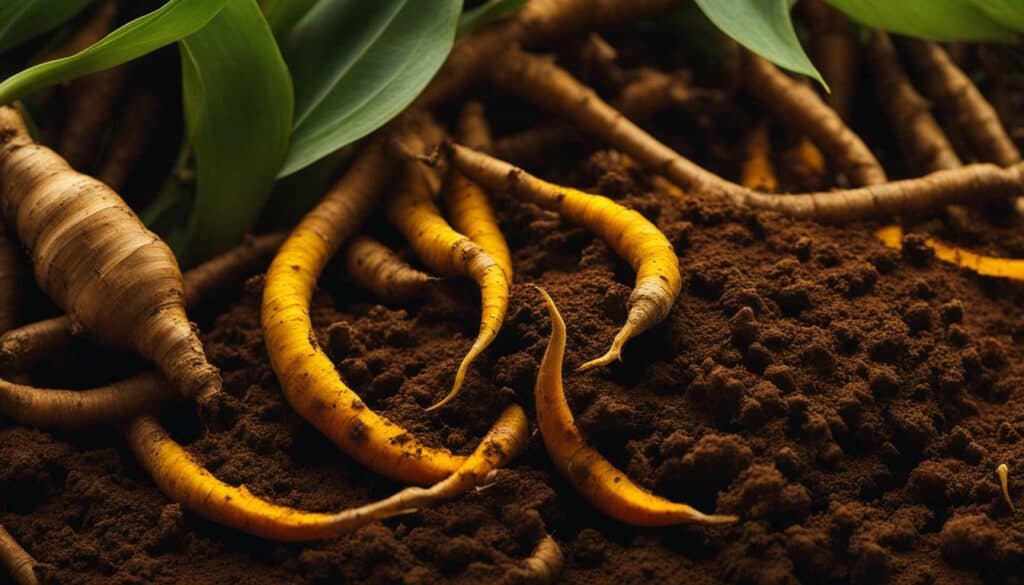
Recommended Gardening Resources
To further enhance your gardening journey, I highly recommend two valuable resources: the “Vegetable Gardener’s Bible” and “The Seed Saving Bible.” These comprehensive guidebooks cover all aspects of vegetable gardening, including soil management, pest control, seed saving, indoor gardening, and more. They are must-have resources for any budding gardener looking to master their craft.
Aside from these comprehensive resources, there are a variety of other organic gardening supplies and products that can help maximize your garden’s productivity. One of the most important of these is organic fertilizer. By using organic fertilizers, you can provide your plants with the essential nutrients they need, without the use of harmful chemicals and pesticides.
Another trend in gardening is hydroponic vegetable gardens. These gardens are perfect for those with limited space or who want to grow plants indoors. Hydroponic vegetable gardens utilize a water-based nutrient solution to grow vegetables, fruits, and herbs in a controlled environment.
For those on a budget, there are many budget-friendly gardening tips available online. These include using recycled materials to create planters, making your own compost, and starting plants from seeds, rather than purchasing expensive seedlings.
Overall, with the right gardening resources and techniques, creating a beautiful and bountiful garden can be achieved by even the most inexperienced gardener. By utilizing these resources and incorporating them into your gardening practice, you can maximize plant growth, save time and money, and create the garden of your dreams.
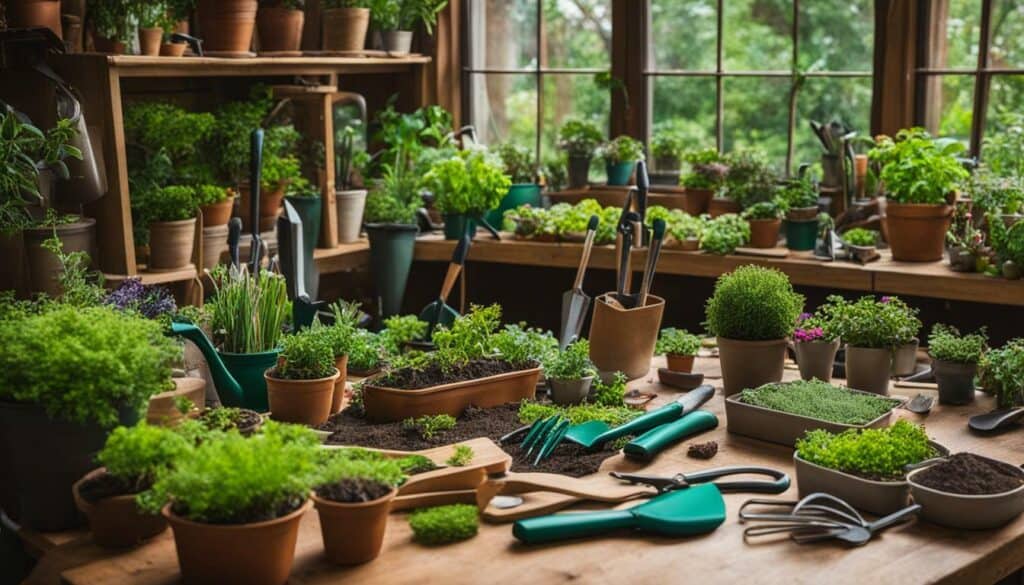
How Can Permian Basin Master Gardeners Help with Easy Gardening?
The secrets of permian basin gardening can be unlocked with the assistance of Permian Basin Master Gardeners. They possess expert knowledge and experience in easy gardening techniques specifically tailored to the region’s unique conditions. By leveraging their expertise, gardeners can learn efficient methods to cultivate beautiful gardens while conserving resources and minimizing challenges commonly faced in the Permian Basin.
Conclusion
In conclusion, by adopting these best ways to garden and implementing various gardening tips and techniques, you can create a thriving and beautiful garden that will bring you joy and satisfaction. The benefits of gardening go beyond just having a lovely garden. It is an excellent way to bond with nature, relieve stress, and promote a healthy lifestyle.
Natural ingredients, such as wood ash, aspirin tablets, leftover fruits and vegetables, vinegar, carbonated water, coffee grounds, eggshells, and tea leaves, can play a significant role in enhancing plant growth, improving soil health, and saving money.
Additional techniques, such as using grass clippings, compost tea, turmeric, aquarium water, and milk, offer their unique benefits to your garden.
The “Vegetable Gardener’s Bible” and ‘The Seed Saving Bible” are two valuable resources that provide comprehensive guidance on different aspects of gardening. They offer practical advice on how to manage pests, improve soil quality, and save seeds for future plantings.
In short, vegetable gardening is an enjoyable and rewarding activity that anyone can do. With the right guidance and a little creativity, you can grow your own fresh and nutritious produce. So, dive into these comprehensive guides and start growing your own fresh and nutritious produce today!
FAQ
Q: Can wood ash be used as a secret ingredient for plant growth?
A: Yes, wood ash acts as a neutralizing agent for acidic soil, promoting optimal plant growth.
Q: How can aspirin tablets boost plant growth?
A: Aspirin tablets containing salicylic acid can stimulate plant growth and prevent fungal diseases.
Q: Can leftover fruits and vegetables be used to enhance plant growth?
A: Absolutely, leftover fruits and vegetables contain nutrients that can enhance plant growth and provide necessary nutrition.
Q: Is vinegar an effective herbicide for the garden?
A: Yes, vinegar can be used as an herbicide in the garden, and it is safe for plants and cost-effective.
Q: Can carbonated water help plants grow faster?
A: Yes, carbonated water contains CO2, which promotes rapid plant growth and greener foliage.
Q: How do coffee grounds improve soil health?
A: Coffee grounds improve soil aeration and provide essential nutrients such as phosphorus, potassium, magnesium, and copper.
Q: Are eggshells beneficial for plant growth?
A: Yes, eggshells are rich in calcium and can be crushed and mixed into the soil to benefit plants, especially tomatoes.
Q: Can used teabags and leaves improve soil structure?
A: Absolutely, used teabags and leaves contain nutrients that enhance soil structure and drainage, with tannic acid benefiting acid-loving plants.
Q: How do grass clippings benefit the garden?
A: Grass clippings decompose and release nitrogen, improving soil quality and encouraging soil aeration.
Q: How can compost tea enhance plant growth?
A: Compost tea can enhance plant growth, produce greener leaves, and serve as a natural replacement for chemical fertilizers.
Q: Can turmeric act as a pest repellent?
A: Yes, sprinkling turmeric near plant roots acts as a pest repellent and can also kill harmful microbes.
Q: Is aquarium water beneficial for plant growth?
A: Yes, aquarium water contains beneficial minerals and bacteria that can promote healthy plant growth.
Q: Can milk be used as a fungicide?
A: Yes, milk has fungicidal properties and can also improve soil health when applied to the garden.
Q: What are some recommended gardening resources?
A: The “Vegetable Gardener’s Bible” is a comprehensive guide to all aspects of vegetable gardening, and “The Seed Saving Bible” offers valuable advice on establishing a healthy vegetable garden.
Source Links
- https://balconygardenweb.com/secrets-of-high-yield-plant-growth-ingredients-to-garden-grow/
- https://www.amazon.com/Vegetable-Gardeners-Bible-Companion-Management/dp/B0BW2LXRKV
- https://www.amazon.com/Complete-Vegetable-Gardeners-Bible-Books/dp/B0C2RF55QD
- https://growagoodlife.com/improve-garden-soil/
- https://extension.psu.edu/practical-tips-for-healthy-soil-in-a-home-garden
- https://www.terra-lawn-care.com/blog/soil-improvement/
- https://www.gardeningknowhow.com/garden-how-to/soil-fertilizers/aspirin-for-plant-growth.htm
- https://www.epicgardening.com/aspirin-for-plants/
- https://decor-uk.com/ideas/aspirins-for-healthy-indoor-plants-and-in-the-garden-too/
- https://www.eatingwell.com/article/290729/how-to-grow-fruits-vegetables-from-food-scraps/
- https://www.cleaneatingmag.com/clean-living/greener-you/heres-how-to-put-food-scraps-to-work-in-your-garden-without-composting/
- https://balconygardenweb.com/diy-fertilizer-recipes-from-food-scraps-kitchen-leftovers/
- https://microveggy.com/best-recipe-for-killing-weeds-with-vinegar/
- https://www.bhg.com/gardening/pests/insects-diseases-weeds/vinegar-as-weed-killer/
- https://www.thespruce.com/vinegar-as-a-natural-weed-killer-2132943
- https://www.lovethatleaf.co.nz/blogs/plant-care-guides/watering-plants-with-carbonated-sparkling-water-growth-hack
- https://www.evergreenseeds.com/carbonated-water-for-plants/
- https://migardener.com/blogs/blog/boost-plant-growth-by-watering-your-seedlings-with-club-soda
- https://www.hgtv.com/outdoors/gardens/planting-and-maintenance/how-to-use-coffee-grounds-in-the-garden
- https://www.gardenersworld.com/how-to/maintain-the-garden/coffee-grounds-for-plants/
- https://www.thespruce.com/using-coffee-grounds-in-your-garden-2539864
- https://thisismygarden.com/2023/01/use-egg-shells-in-the-garden/
- https://www.growveg.com/guides/using-eggshells-in-the-garden/
- https://gardenerspath.com/how-to/organic/using-eggshells-garden/
- https://senbirdtea.com/3-ways-to-use-green-tea-leaves-in-your-garden/
- https://www.homesandgardens.com/advice/using-tea-leaves-in-the-garden
- https://balconygardenweb.com/tea-bag-uses-in-garden/
- https://migardener.com/blogs/blog/different-gardening-methods-and-the-pros-and-cons-of-each
- https://www.gardeningchannel.com/top-gardening-methods-explained/
- https://diynatural.com/gardening-techniques/
- https://spottsgardens.com/best-garden-resources-extension-books-websites-organic-garden/
- https://www.nal.usda.gov/plant-production-gardening/vegetable-gardening
- https://www.makeuseof.com/tag/gardening-websites-apps-beginners/
- https://www.bhg.com/gardening/yard/garden-care/ten-steps-to-beginning-a-garden/
- https://www.betterhealth.vic.gov.au/health/healthyliving/gardening-for-children

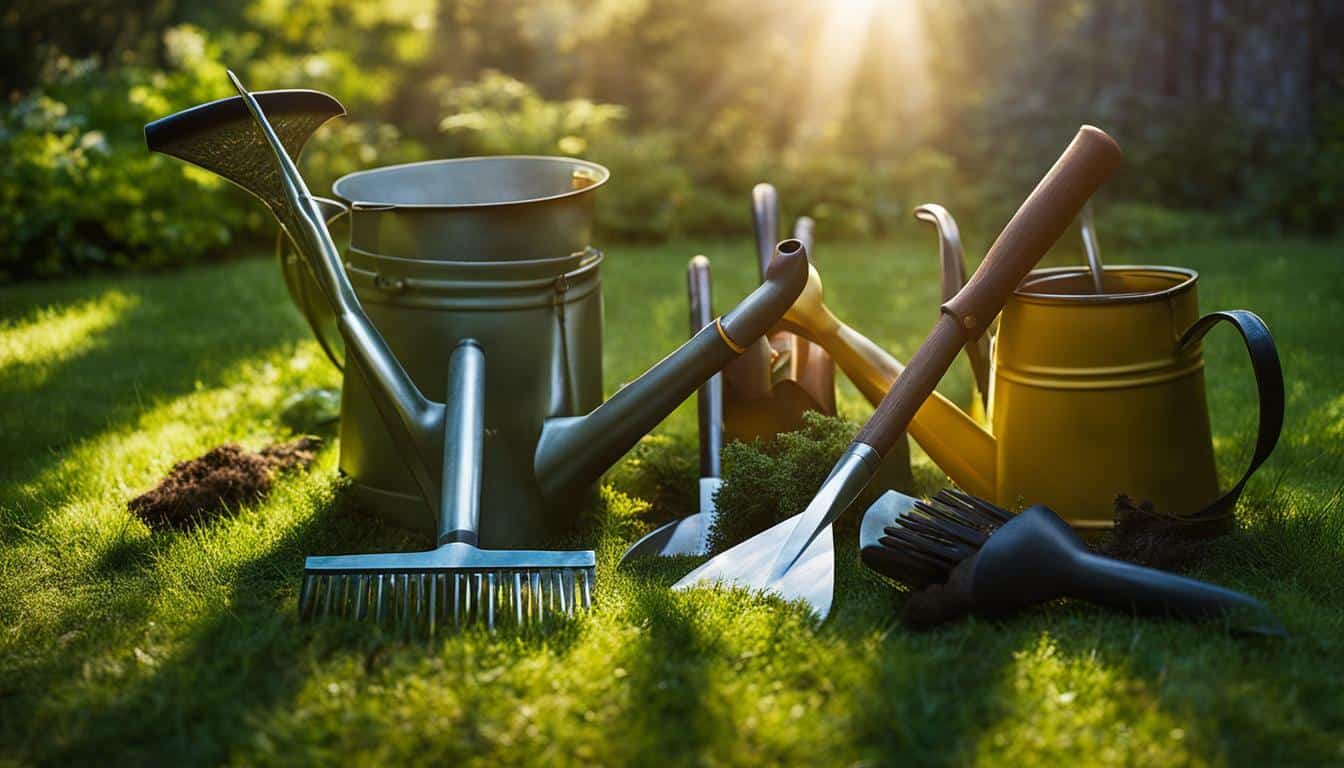
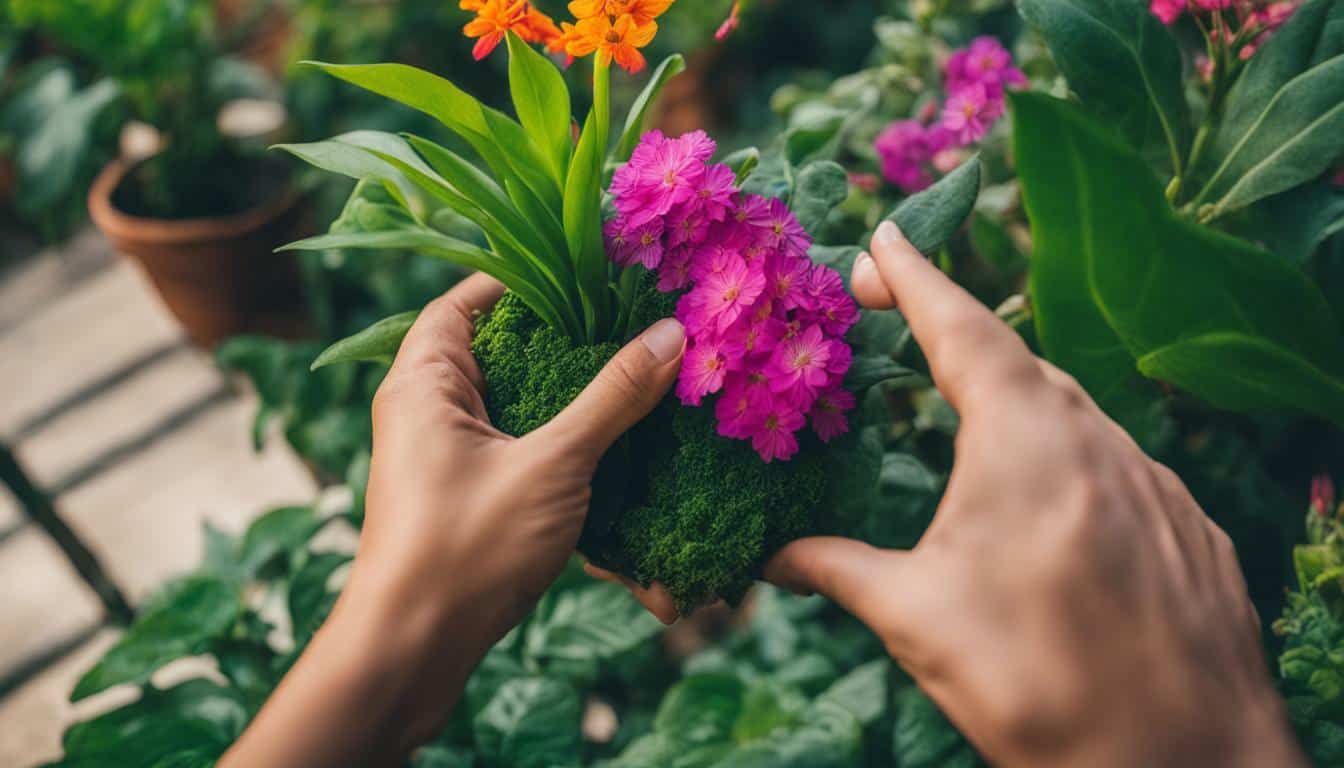
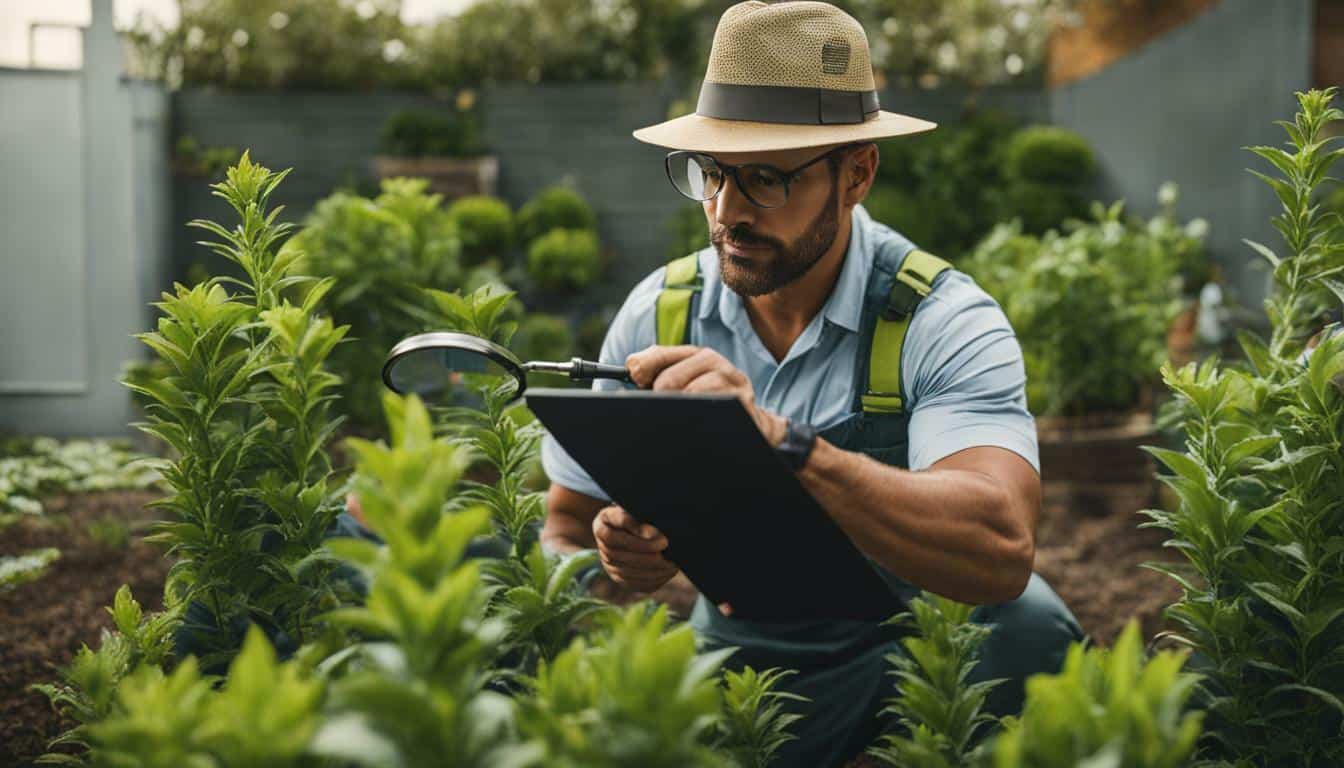

Leave a Reply